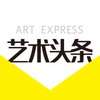“Wu prepared some coals for winter yesterday, about 100 kilograms or even more, all heaped before his house.”
“But his son won’t be back from the City until tomorrow.”
“If he just leaves the coals by the street, he will have troubles. After all, we are in the City.”
“And the coals will be stolen. By tomorrow, they will be all gone.”
“The TV broadcasted that a lot of people got caught just now.”
Songzhuang, a small village about one hour’s driving away from Beijing, is home to quite a few Chinese avant-garde painters. If you go there by coach, you’ll have to spend a long time on your seat, and you can not always get a seat.
“We do not have a bus everyday.” a young man selling vegetables by the road side reported. For the moment, the place where artists dwell in can hardly be called a village. Those traditional rural houses of northern China are arranged just like pieces on a chessboard. Maybe authorities during socialistic revolution favored straightness, thus they divided the original village into many exemplar production teams. Anyhow, this place has no trace of disorder left by history, only hamlets of various sizes, or a patch reserved for certain temple, a lotus pond, or a graveyard. The houses in the courtyards are constructed by strictly following geometric rules: all are rectangular houses, brightly shined and elongated, with roofs supported by unique old square girders. Most often, the courtyards here are traditional enclosed quadrangles typical of northern China, and even their colors embody northern China characteristics. The walls are white, and the wavy tiles are classic grey. In one of the quadrangles, we discovered a brick well, clusters of flowers and vined vegetables. If this village were free from those artificial establishments, then all the stuff in this rural Chinese village would be more favorably impressive.
“New tombs will be built next year.”
“That will be a waste of money indeed. It’s just ok to remove the old ones.”
“I saw a kind of small navvy in the City recently; it’s only the size of a horse.”
“But how can you let a horse dig earth!”
Though Songzhuang does not have an artistic market, it is home to more artists than any other places in China. Our guide from Godesberg made a professional comment: “Almost hundreds of artists, if all family members are included.” When he was not pressed by his work in the City, he would live in the village and draw paintings. Maybe for the purpose of disguising his neediness, he announced that he had a passion for “non-modernism”. He tool pleasure in those poplars and willows, and those jovial dogs running everywhere.
Painter Fang Lijun had two dogs that bite easily. He was about to leave for Shanghai, but he took the trouble to open his studio door for us and leaded us to a safe zone away from his two wild animals.
Fang is the most famous painter of China avant-garde art. What impresses the audience most is his eye-catching bald-head figures---sometimes in flower shower staring at you. Critics find in these mysterious figures “a wishful and almost Utopia appeal” or “a totally dull state of mind”.
“Fang’s colors are dazzling, for he wants to be away from the desolation of Beijing outskirts.”
“But not to be away from Beijing. He likes Beijing. No, he just wants to be away from his childhood.”
“So where did he grow up?”
“Somewhere in Hebei province.”
“Anyway, he was brought up with strict socialistic education.”
Outside the door a foreign jeep was starting itself. Rich painters usually wear black coat obviously designed by Japanese who did not wear tights when they went skiing in childhood. Their spacious studios also serve as showrooms, saloons and storerooms. If we still lived in the feudal age, then these rooms would have had sweet names such as “Autumn Moon over a Placid Lake”. But we live in an unstable post-socialistic period now, so they do not even have a room number.
Those less rich painters share studios and quarters, and dry their clothes in the kitchen in the south of the quadrangle. At this time of early November when sunshine can hardly pierce the cloud, such a scene seems somewhat like a backyard landscape painting of Spitzweg.
“You are going to have an exhibition?”
“Not exactly, some Nanjing painters are also invited.”
“Where do they want to do here?”
“So Nanjing has Informell too? How come? ”
“Be careful with your directory. I know that exhibitor, he always save money from printing.”
Most of the painters here used to live or often meet in the Pinter Village near the Summer Palace a couple of years ago. There, rock-and-roll singers from all levels of the art circle, vagrant poets and vagabonds would stage freakish shows together. Sometimes the show was clamorous and passionate; sometimes it’s enchanting and romantic; and sometimes it’s awful and sluttish. As depicted in the novels of Chinese young writers, they care about nothing except that they still keep traditional narrative rules and hold critical attitudes for politics.
Anger, suspicion, alarm, and maybe a bit of envy, are what the authority harbors toward such clamor.
Westerners living in this city like to take their guests here to show them a totally different China, towards which the artists show no antipathy. Those foreigners always bring them with magazines, catalogues, books and CDs, from which they can learn something useful. Anyway, those things can also be reprinted for further sales.
“Lu’s first series is exhibited in the house of a French ambassador.”
“That’s a private residence.”
“If an Ambassador moved away, the house would be re-finished, with all things like wallpapers ripped off.”
“And it turns out to be a best place for painting exhibition.”
“But of course not all persons can be admitted.”
In the area around the former Painter Village near the Winter Palace, the first culture archaeologists have already been measuring and evaluating the soil breeding these bolshy modern people. But this is Beijing. Here in Songzhuang, people can feel the distance to Beijing, feel the distance to those crazy ages. Obviously, this city or this country may be a base point for them, but the Internet will bring them another standard, at least with equal significance, supply the latest dynamics of arts markets all over the world, as well as novel ideas of exhibitors and gallery owners. From New York to London, from Dusseldorf to Tokyo, they can still calmly respond to Per Kirkeby or Jeff Koons, SigmarPolke or Jenny Holzer. Politics? Necessary, but always supervised by the aesthetics. Hanging a piece of painting by a famous compeer in a studio, he collaged scores of photos, which features a character拆(Cai) on various kinds of bricks. 拆(Cai) means “to dismantle”, dismantle those bricks belonging to those Chinese residences in old times. They are things to be sacrificed in the process of China’s modernism. The painting is named “China”, no doubt conveying a direct and criticizing meaning. Even if you do not understand the Chinese word on the painting, you may still sense its influence on you. “Sort of realism”—that’s the phrase we call one of the art genre to be exhibited.
“They published my article, but the paragraph about Anselm Kiefer was cut out.”
“It must be Zhang who did that. His has the Party lines planted in his head.”
“And in bones too.”
“He is always able to bungle exhibitions.”
“Yes. He would say that the Fire Control Bureau does no approve or you don’t have a W.C here.”
Before we took leave, we dined out in a restaurant with all avant-garde artists here. The restaurant is beside a wide road linking the airport and the City. It erects flag of various countries and appears very striking. Inside the restaurant, the decoration is quite glamorous; the waitresses, with high-heels, high-forked dresses, and even high-coiled hair style, are not much of country girls any more. We already had a nice separated room booked on the second floor. Our host, a critic, while carefully studying the menu, told us that this restaurant did not target local petty farmers as customers.
We talked about the conception of “avant-garde” over cold dishes.
“We never call ourselves avant-garde artists,” said an experimentalist painter, “this word sounds very socialistic, like a word for the pioneers of working class or something like that, or rather, the army.”
“Our brave pioneers of red cavalries just cracked it…
He whistled with the tissue.
“Avant-garde has the same meaning in German. Does it have any thing to do with painters’ living conditions in villages?”
“Unless that it means keeping distance.”
Yes, one has to keep distance from others to make himself/herself special and rare. He who responds to the international market quickly can always make it. He/Her just has to let others know his/her Chinese background.
But one has to keep distance from whom?
Say “No” to all responsibilities, genres, movements, awards, national duties and so on. If the “others” only appear over the Internet, it will much easier to deal with them.
“We have nothing to fear here,” a painter yelled, “for we have dogs in our court and market in the whole world.”
“But no market in China.” a visitor protested.
“The luck is just around the corner.” the painter replied.
作者:Tilman,Sprengler



